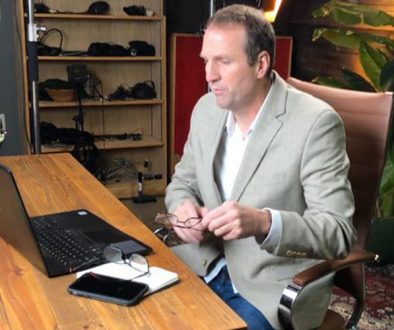What is “family recovery”?
From its inception FAVOR Greenville has placed great emphasis on the value of “Family Recovery”. We have swung the doors of our recovery community center wide open to families regardless of the recovery status of their loved ones. We operate with a few basic principles that have guided our family programming from the very beginning.
1) We believe that there is merit in family recovery in and of itself. Family members experience profound health concerns when substance use disorders are present. These include chronic stress, physical problems, sleep difficulties, depression and anxiety. Even if the person suffering with a substance use disorder never makes a change the family deserves special focus and support to deal with these issues.
2) The family has tremendous power that can be harnessed and focused in a way that increases the likelihood their loved one will seek recovery. Frequently, when family members start to change the person with a substance use disorder will start to change. Family systems theory tells us that if you move one part of the family you move the entire family. Like a mobile above a baby’s crib it is impossible to move one part without impacting the whole. 
3) Family members are frequently the first point of contact in the process of recovery initiation. Family members constitute a more willing customer base. They will call for information and options well before their loved one darkens the doors of our center. They are open to feedback and, in many cases, begging for information and options. Therefore, FAVOR Greenville sees the family as a ready-made channel for engagement of those in need.
4) Family recovery coaching is a unique discipline and the shared experience of families in recovery can be capitalized on in a manner consistent with basic peer support services.
With these principles in mind FAVOR Greenville started family programs in 2013 with a simple open “Family Recovery Group”. The group was modeled on basic group facilitation processes of universality, mutual support and mutual respect. Our initial group attendance was 12 people. We held these groups every Monday night at 6:30pm. The group exploded in attendance based nearly entirely on word of mouth. In 2016 this group averages 54 people per week with a high this past month of 103 people in attendance. The group has become more didactic and educational in nature. However, we start each group with questions from the week and we make sure the topic of education/discussion is generated by the group. There are usually 10 to 15 new people at group and an equal number of “veterans” who have been in attendance since the group started. Over time an interesting phenomenon arose. The group was intended for any and all family members. Spouses, children, siblings and parents together in one group. However, the group quickly morphed to 90% parents.
In response to this we developed our second family recovery group. Every Thursday night at 6:30pm we hold our S.O.S. (Significant Other Support) group. This group focuses on spouses or adult children. This group has a different tone than the parent group because the dynamics are different spouse to spouse versus parent to child. This group has operated for 2 years and average attendance is 20 people.
Finally, we have just added an off-site Family Recovery Group in our neighboring town of Spartanburg SC. Many people from Spartanburg had been making the trip to Greenville. However, it became clear that the community needed a satellite group. We launched this group in 2016 by forming a partnership with a local church. We rent the space and facilitate essentially the same group. Average attendance at that group has been 30 people.
We also have a children’s program for children of parents in recovery and/or children of parents struggling with active substance use disorder. This is a curriculum based program and we run it periodically based on community response/need. We have had 103 children complete this program. Along those same lines we have added two teen recovery groups serving teens in any stage of the process from prevention to recovery. We have had 127 teens attend our groups.
Another distinct area of family recovery support at FAVOR Greenville is our family recovery coaching. These are parent to parent; spouse to spouse; family to family coaching relationships put in place to supplement the various groups provided at FAVOR Greenville. We actively recruited family members who had been “working a recovery program” and developed a specific curriculum to supplement our regular coach academy. These family members completed a specialized training academy to become FAVOR Family Recovery Coaches. To date we have trained 53 family coaches and currently have 29 active Family Recovery Coaches who volunteer on average 5 hours per week to coach and support other families. We have been over-joyed with the Family Recovery Coaching programming. We have provided over 8,000 hours of family recovery coaching since initiating the program. The family coaches are incredibly enthusiastic and grateful and this is reflected in the way they engage our families in need. This has been magical to watch.
Overall, it is important to note, 48% of the service hours delivered at FAVOR Greenville are delivered to family members in need. The distinct difference with our program is the following: Family recovery is not an add on or adjunct to service; family recovery is front and center and a cornerstone of the center. We have found that family members want to be included in the process and they make great volunteers and supporters. FAVOR Greenville will continue to place formal emphasis on family recovery and we believe our program will expand in the area of family recovery as we move forward in our mission.
What have we learned in our work with families?
- Parental experience in dealing with addiction is 100% different than spousal experience. This cannot be over-stated. It is important for family programs to provide specialized services and information for parents. We must maintain an awareness of the influence Alanon has on traditional family work. Alanon sprung up as a support group for spouses of those in Alcoholics Anonymous and many of those principles do not translate smoothly to parents. It is a completely different experience for parents as they struggle with setting boundaries and reducing enabling behaviors. It is not a simple set of instructions and the conversation must be delivered in a way that is acceptable to the parent. For example, do not tell a parent “you are sick and just need to take care of yourself”. The result of such a statement will be complete disengagement. This is a reality that must be acknowledged and accounted for. We must become more individualized and engaging in our work with families.
- Families can become skilled in responding to addiction. It is possible to teach family
members basic skills that can be useful in responding to their loved one’s addiction. We can help them develop basic recovery messaging. We can help them be strategic about when and how to bring up crucial conversations. It is even possible to teach basic motivational interviewing principles and skills. Families love information and they are empowered when they feel more competent. I am not saying that a family member can serve as a loved one’s counselor. However, he or she may be able to provide really helpful and tangible support. The idea of complete detachment and “staying out of it” is looking less and less appropriate the more I work with families. It has been said that 1 family member wields the power of 8 professionals. Let’s teach families ways to capitalize on that power.
- Families can help families. Family coaching is a real discipline. We have been training family coaches for 3 years now and there is nothing more powerful than a family to family supportive relationship. The practical shared experience and the exceptionally strong sense of empathy is beyond comparison. It is one of the most therapeutic supports available for family members in need. We need more family coaches and we need to honor family recovery professionals.
Despite this progress we know that we have not even scratched the surface of what can be done with families. The reality is family members have to be front and center in this fight against addiction. It is not sufficient to merely state “addiction is a family disease”. We have to do programming that reflects a belief in addiction as a family disease.


 members basic skills that can be useful in responding to their loved one’s addiction. We can help them develop basic recovery messaging. We can help them be strategic about when and how to bring up crucial conversations. It is even possible to teach basic motivational interviewing principles and skills. Families love information and they are empowered when they feel more competent. I am not saying that a family member can serve as a loved one’s counselor. However, he or she may be able to provide really helpful and tangible support. The idea of complete detachment and “staying out of it” is looking less and less appropriate the more I work with families. It has been said that 1 family member wields the power of 8 professionals. Let’s teach families ways to capitalize on that power.
members basic skills that can be useful in responding to their loved one’s addiction. We can help them develop basic recovery messaging. We can help them be strategic about when and how to bring up crucial conversations. It is even possible to teach basic motivational interviewing principles and skills. Families love information and they are empowered when they feel more competent. I am not saying that a family member can serve as a loved one’s counselor. However, he or she may be able to provide really helpful and tangible support. The idea of complete detachment and “staying out of it” is looking less and less appropriate the more I work with families. It has been said that 1 family member wields the power of 8 professionals. Let’s teach families ways to capitalize on that power.
